Elizabeth Gibot’s son James was normally a quiet and well-behaved toddler. But she noticed he began to cry more and appeared anxious whenever she wasn’t around. He also stopped using the sign language she taught him as a baby. She knew something was wrong, so she reached out to their pediatrician, but the doctor couldn’t provide any help or answers.
“He regressed from everything that I had taught him,” she said. “I guess it was very hard for other people to notice because nobody knows your child more than you.”
At the time, Gibot had just left her partner, who she said was physically, verbally, emotionally and financially abusive. She tried to shield James when things got confrontational, but living in a small house made it unavoidable at times.
Gibot began searching for resources online. She stumbled upon Mi Escuelita, a preschool in San Diego dedicated to students who have experienced family trauma, such as domestic violence. After some thought, she enrolled James.
“Just that alone was a huge weight off my shoulders, knowing that he’s going to be here and with professionals that are going to help him, in ways that I could never. I mean, at least not in that moment in time,” she said.
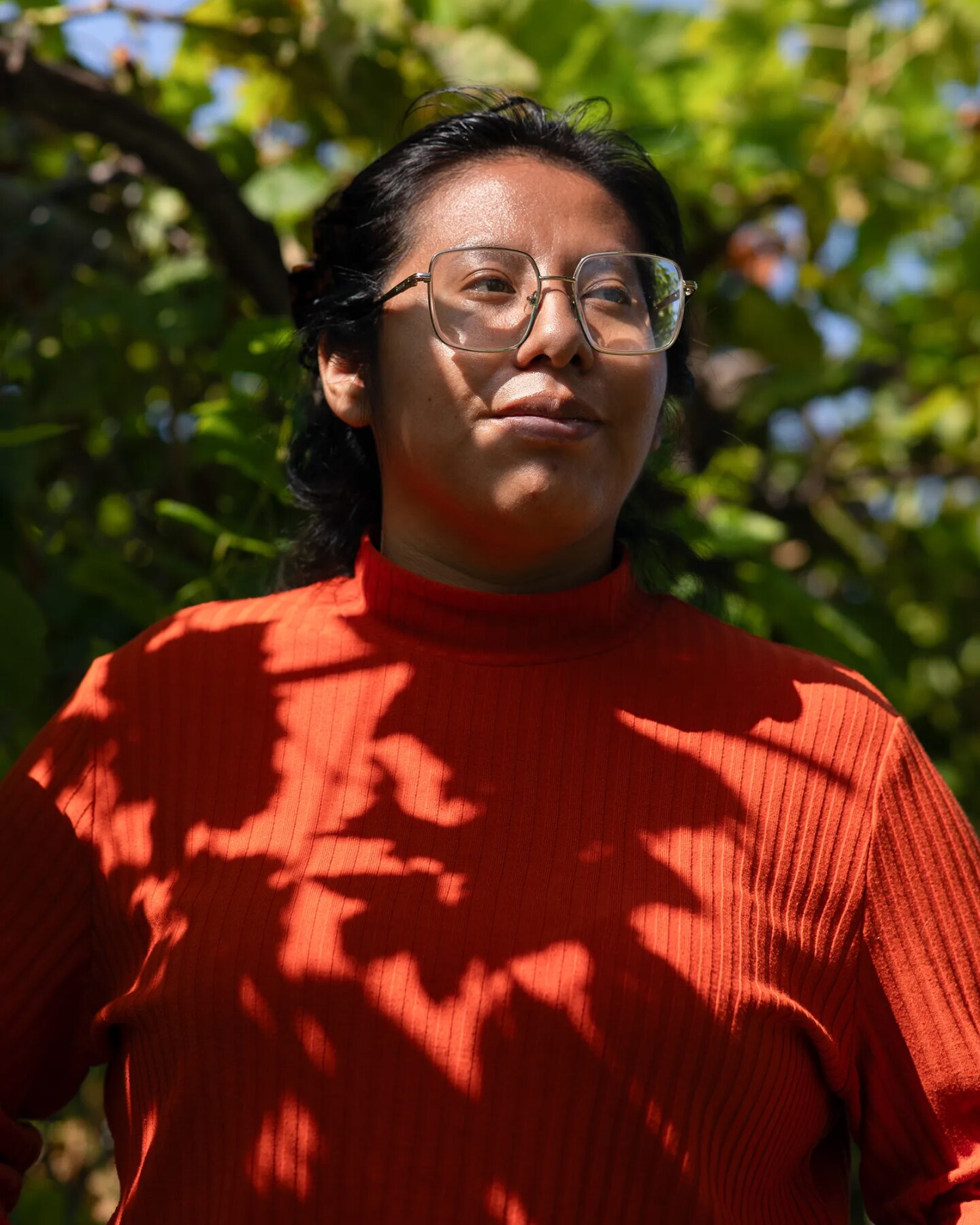
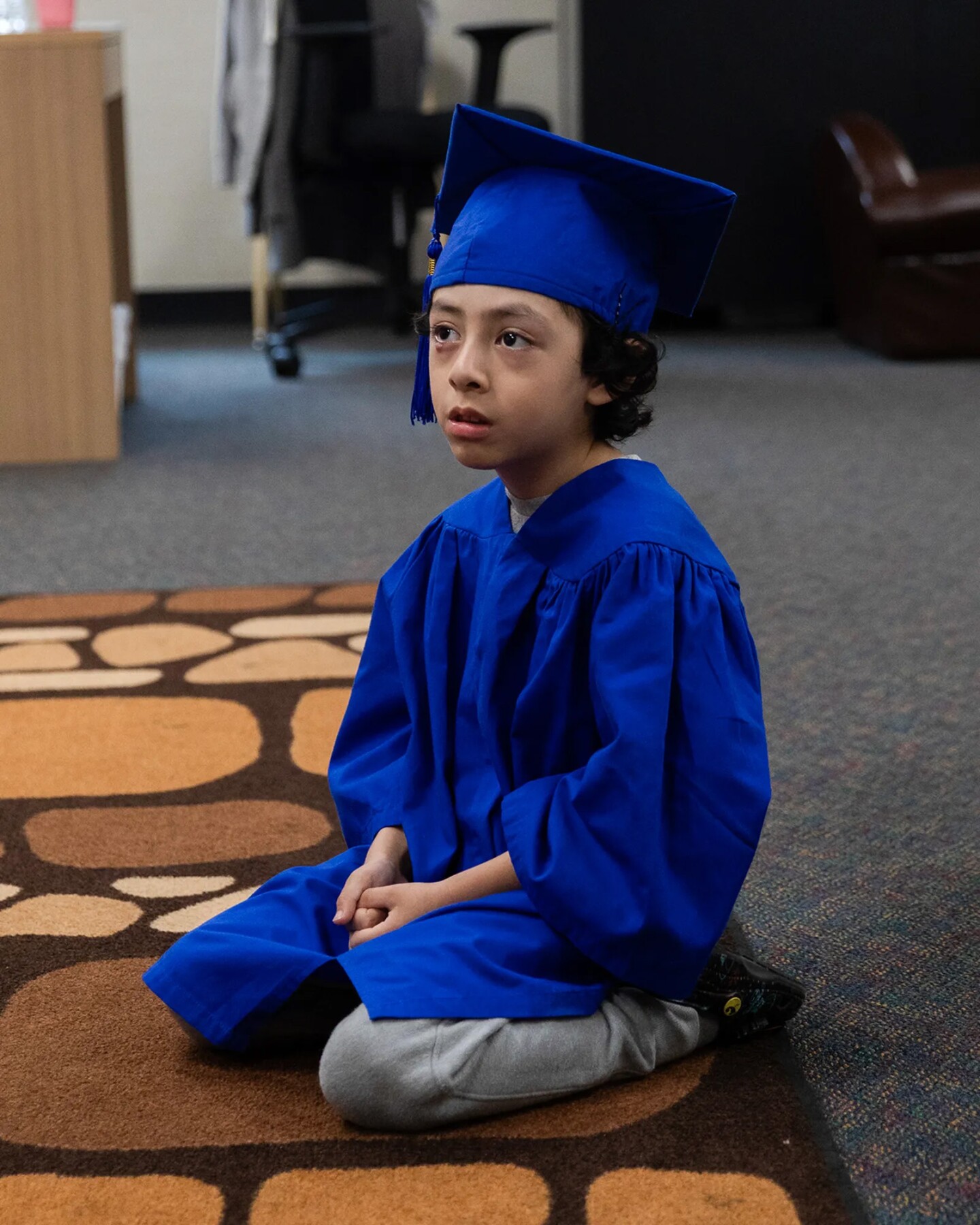
Mi Escuelita, founded in 2006, offers students on-site mental health services and a safe space where children can learn and heal. It’s considered a leader among therapeutic preschools, and it offers insight to the emerging concept of a trauma-informed learning environment for students and their families.
Run by the nonprofit SBCS, formerly known as South Bay Community Services, the school has long provided services to families in need, including those experiencing domestic violence. Mi Escuelita grew out of those programs.
“It’s to really focus on the little guys,” said Stacey Musso, director of the behavioral health and wellness department at SBCS.
In addition to making sure students are ready for kindergarten, Mi Escuelita offers one-on-one and group therapy. It has on-site therapists accessible to students during school hours. Angelina Puffelis, clinical supervisor at Mi Escuelita, says the access provides her team an opportunity to work with students and address issues as they bubble up.
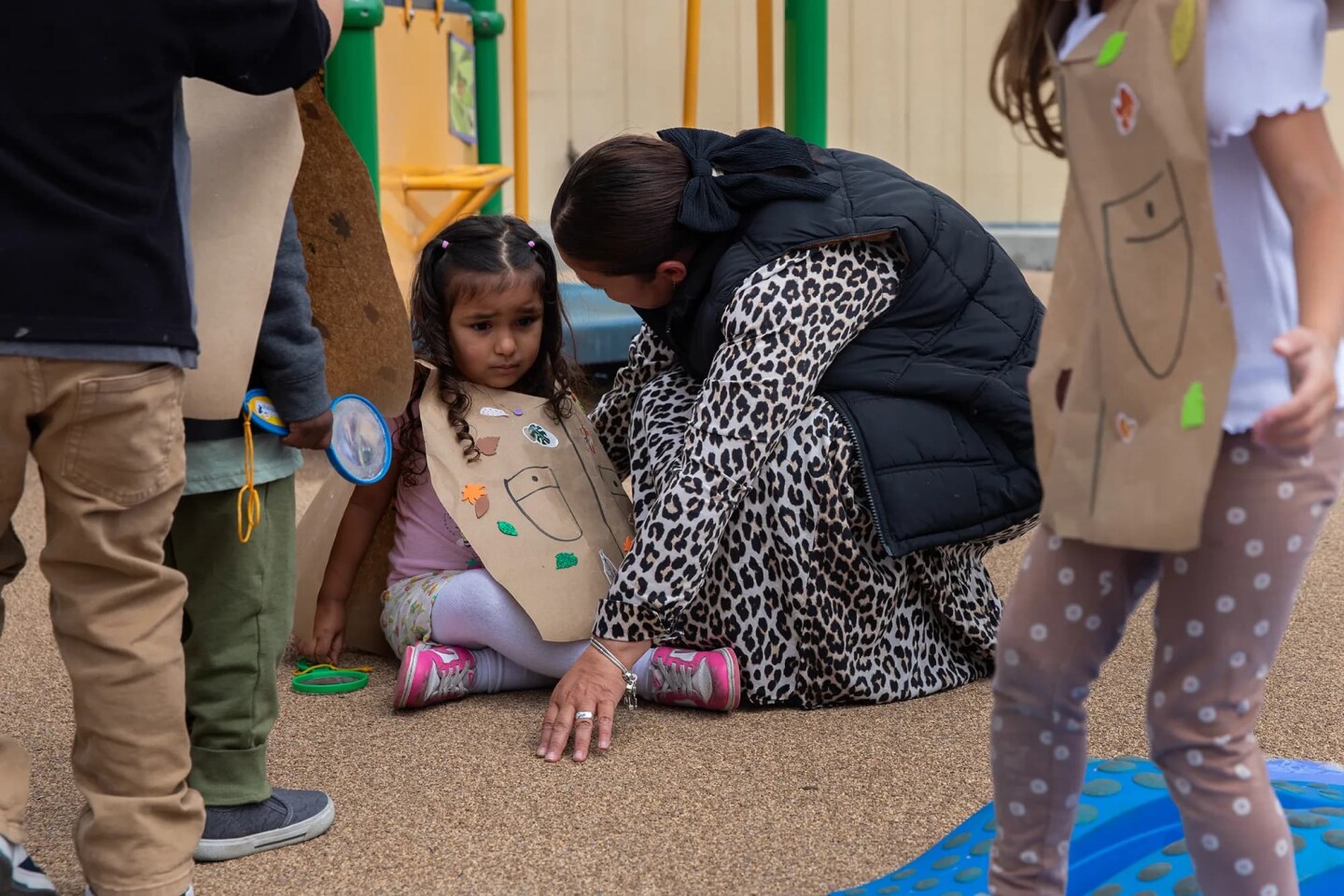
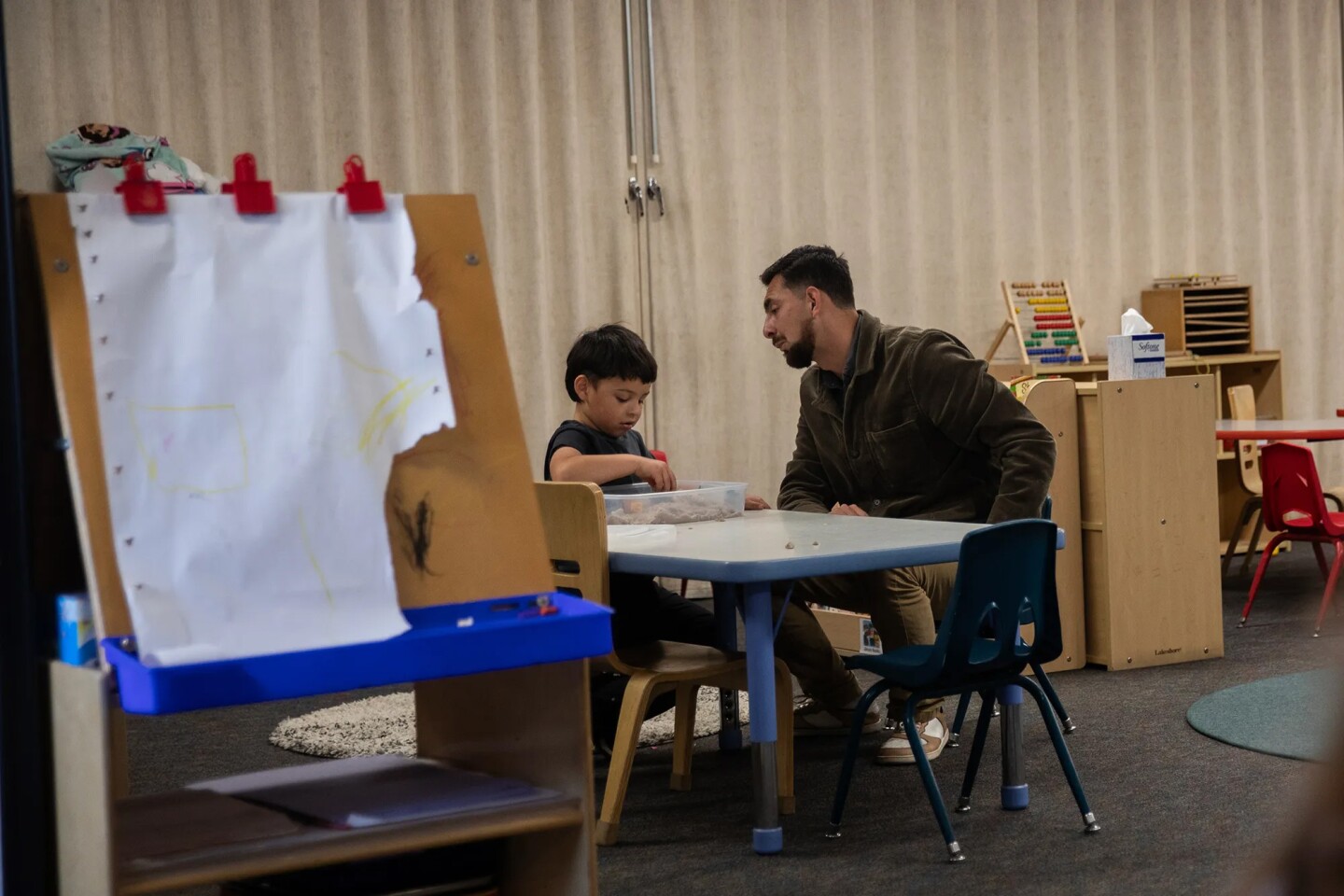
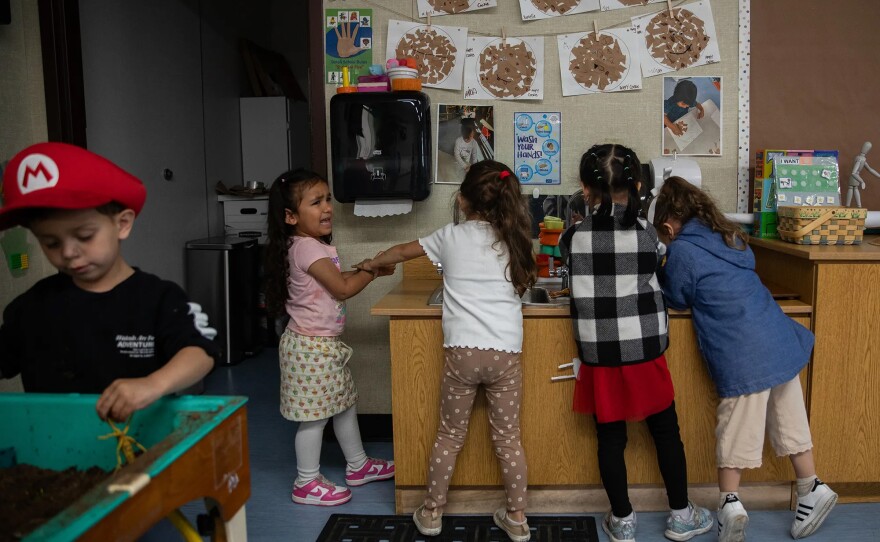
According to a recent report, 28 parents of students enrolled at Mi Escuelita last year reported having been involved in multiple domestic violence relationships. Seventeen of them had to move or were homeless as a result of domestic violence.
Evidence shows the program works.
A recent UC San Diego report found 82% of students at Mi Escuelita scored above average on the Kindergarten Readiness Test, which evaluates a student’s preparation for kindergarten. An above-average score indicates a student should need “very little special attention and with no major learning difficulties.”
Students attend Mi Escuelita at no cost, and classes are offered year-round. In return, families agree to work with school officials to address mental health issues head on.
“We ask that our families understand our environment. It is so unique,” said Mi Escuelita preschool director Lisa Klemp. “We really believe in that connection. We want to support not just our children, but our family as a whole.”
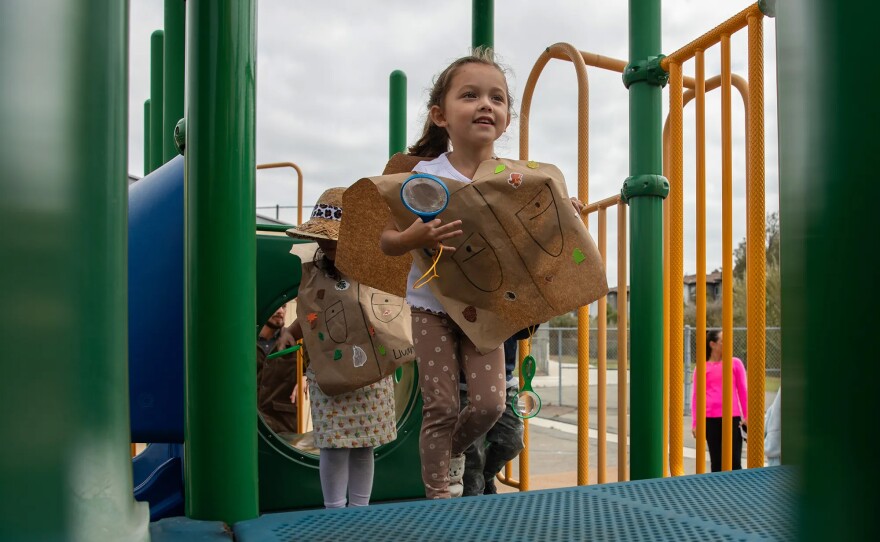
Lessons from nap time
As a handful of students savored the last bites of their sandwiches, carrots and apple sauce during a recent lunch, others prepared for their next activity. They threw away trash, grabbed blankets and lay on mats set throughout the classroom. Some students grabbed stuffed animals or picked out books to keep them comfortable. Teachers dimmed the lights and played a Youtube video of kittens purring as lullabies played softly.
While most students quickly fell asleep, some struggled to relax. One girl refused to sleep and cried when told she couldn’t run around the classroom. Teachers tried to help by offering to read her books or by blowing small bubbles, but she wasn’t having it. Another girl lay very still with her eyes wide open looking straight at the ceiling. She barely blinked and stayed this way for most of nap time before finally dozing off.
“We do see that resting their bodies, the calming, can be challenging for some of our kids,” Klemp said. “I believe that they’ve been in spaces or environments that may have caused them to be hyper alert. And so knowing that you’re in a safe space, that you can calm and relax your body is really crucial for some of them.”
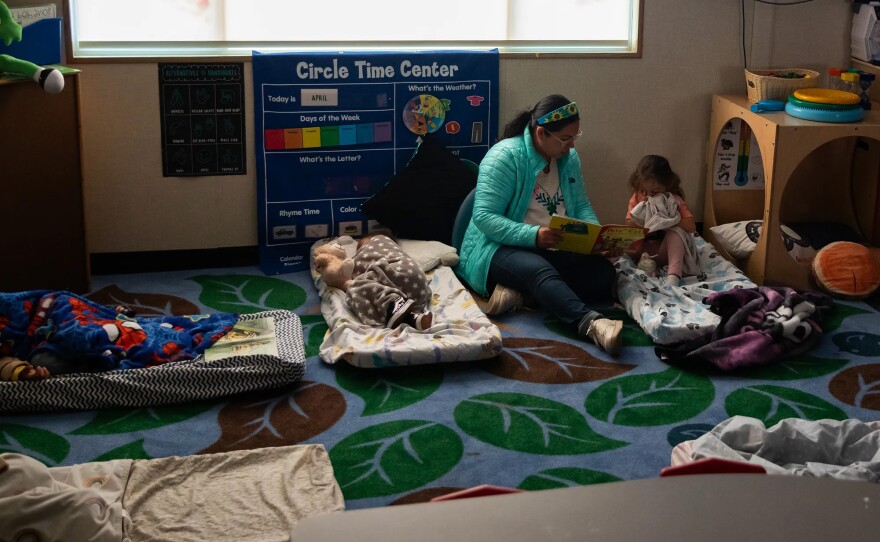
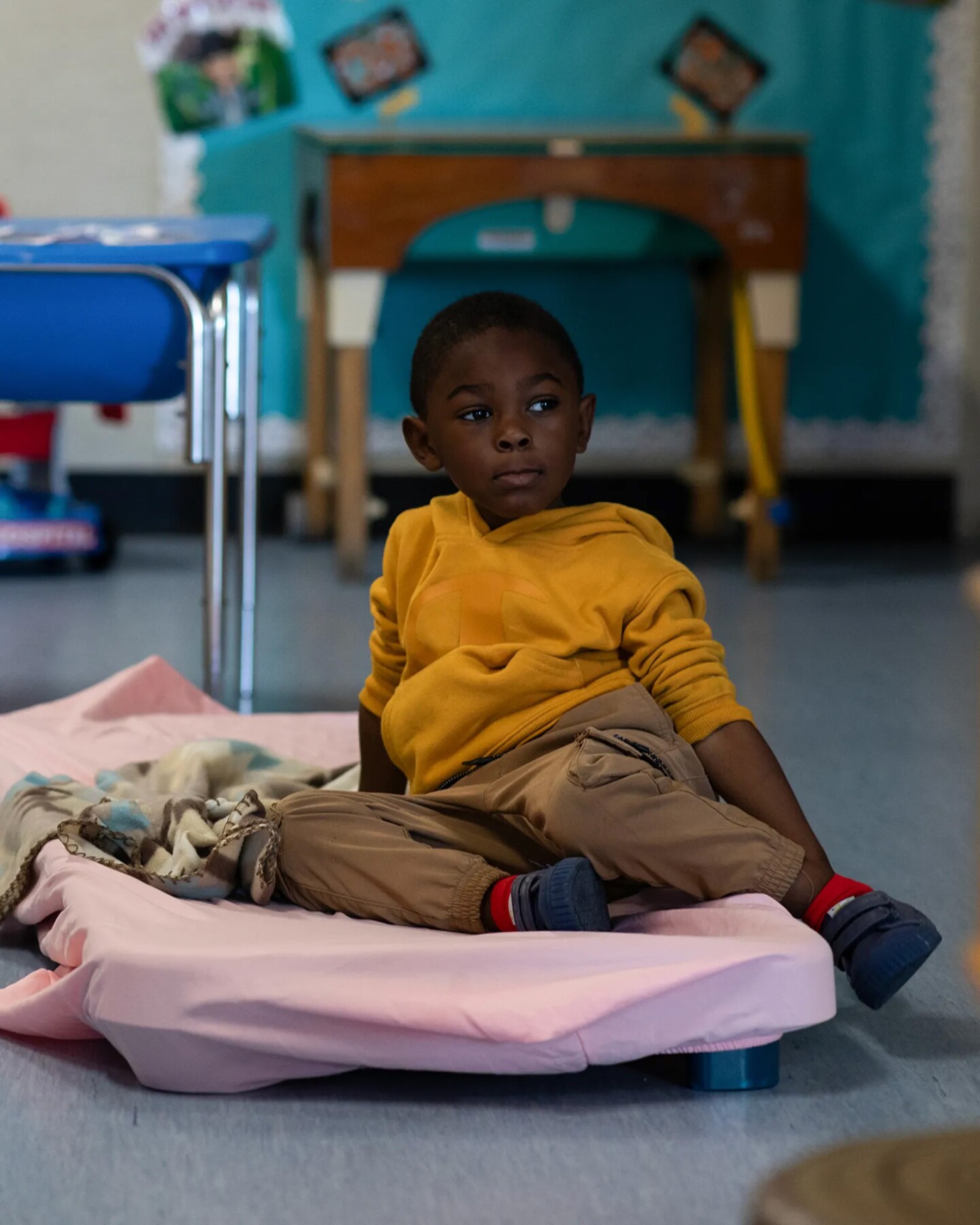
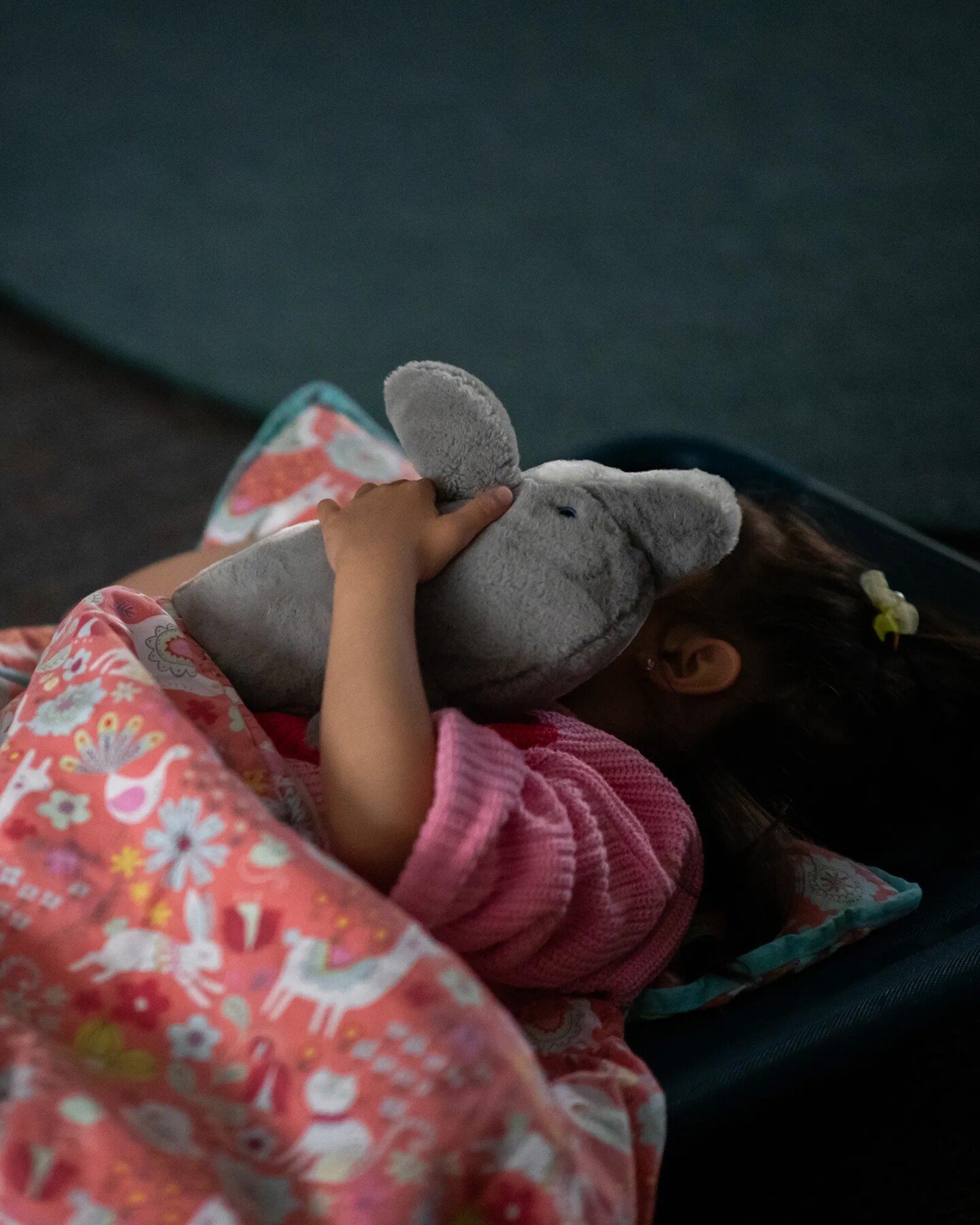
According to the National Survey of Children’s Health, 63% of U.S. adults reported experiencing at least one so-called adverse childhood experience before age 18, such as abuse, witnessing violence or family separation. Trauma can show up in different ways. Some may become explosive in their behavior while others may be timid or seclude themselves. Nap time, in particular, can be a challenge for younger children.
“In general, as a kid, at night can be a scary place. And then if you’re hearing screaming, if you’re hearing someone slamming a door, if you’re hearing someone, you know, police showing up in your home, it just really emphasizes that scary time,” Klemp said.
Trauma in children can go untreated or be dismissed as normal behavior but its impacts can have a lasting effect that can lead to substance abuse, eating disorders, diabetes and heart disease, according to the National Child Traumatic Stress Network. Early trauma can also increase the potential of being involved in the juvenile justice system and low academic performance.
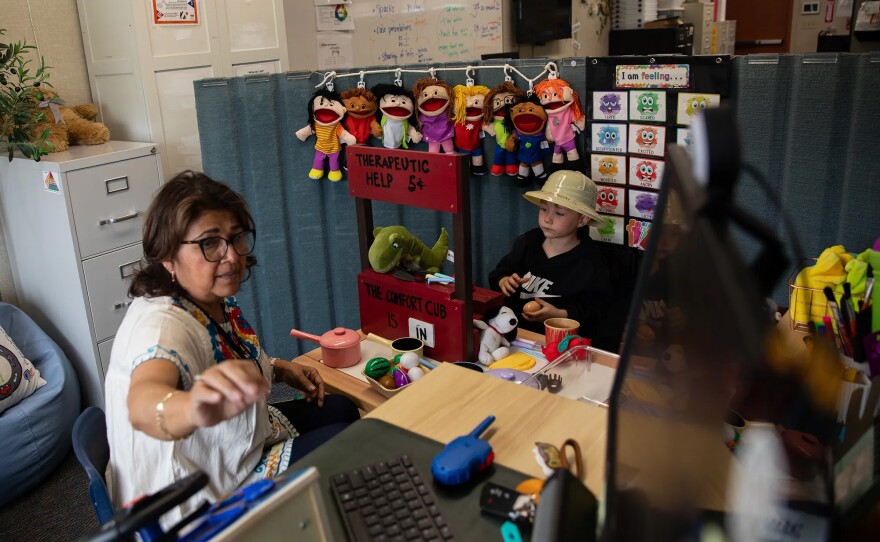
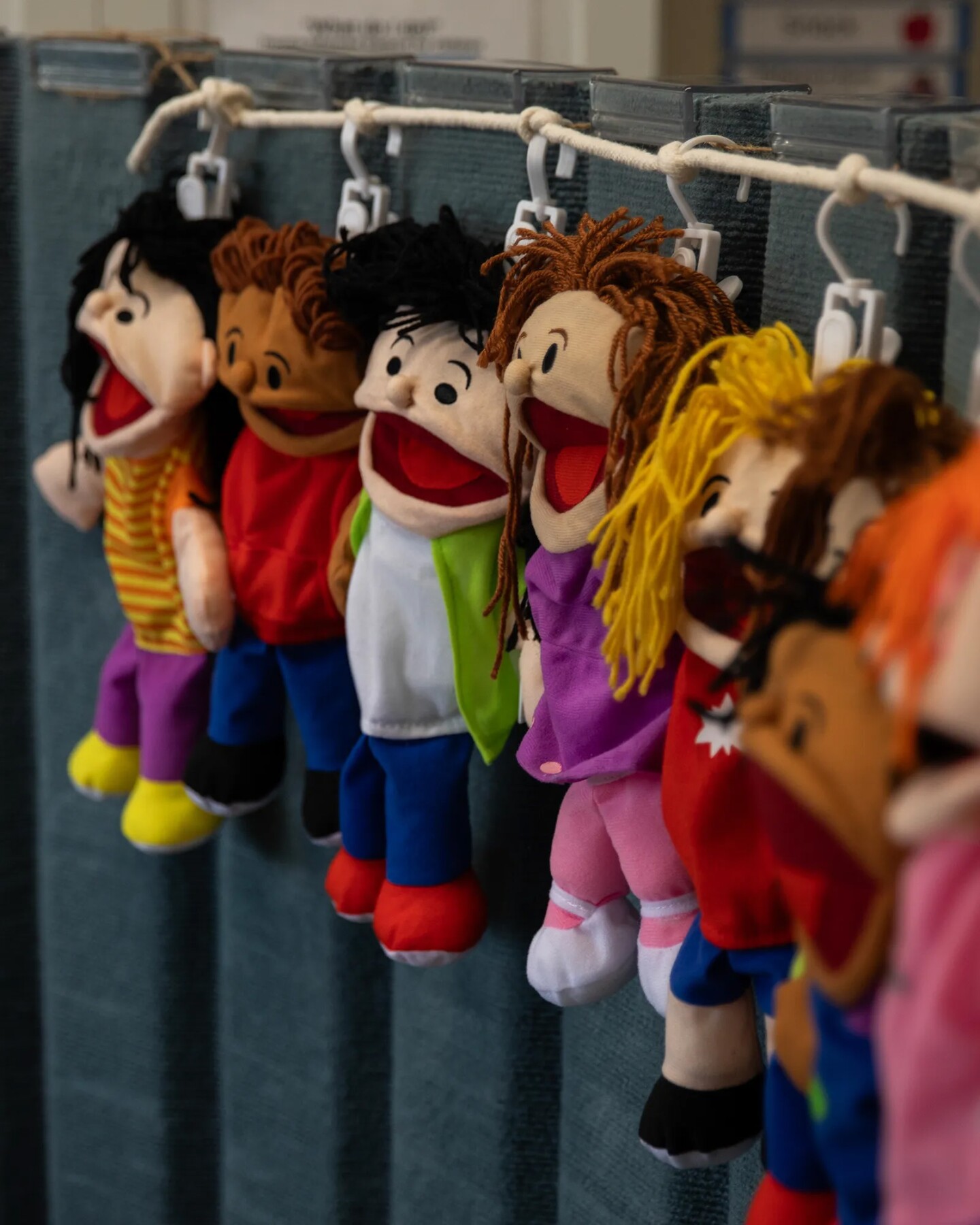
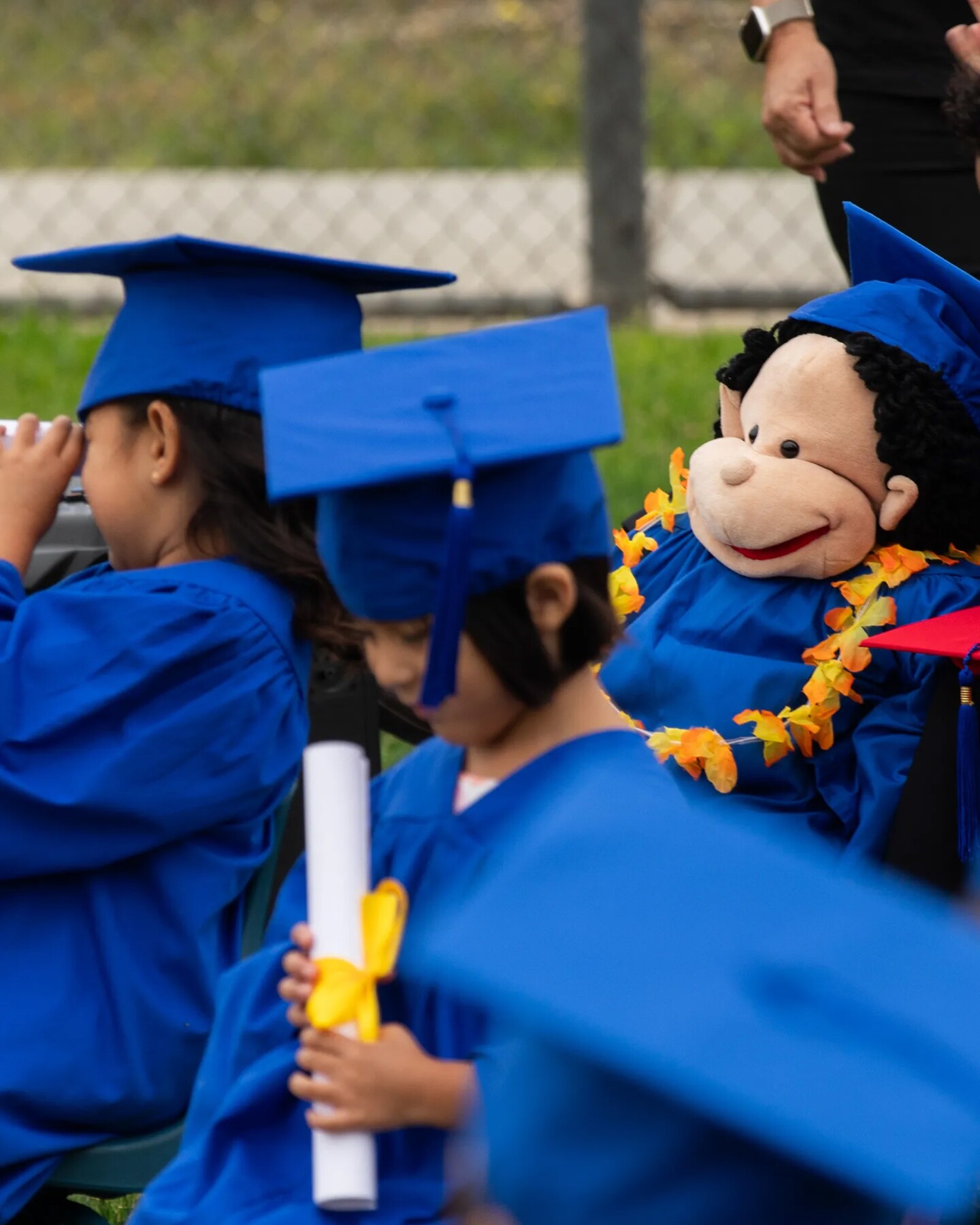
At Mi Escuelita, every student participates in individual therapy sessions with clinicians. Therapy with a child can look different than a session with an adult. Rather than sitting and talking about feelings, therapists at Mi Escuelita play with the students and patiently look for clues or signs of deeper emotions.
“Usually there is a theme and some of the things that are common are protection, safety, empowerment or the superhero; bad and evil,” said Puffelis. “So as a therapist, I look for that. This is a continuum theme and if there’s changes in the home environment, that theme plays out in play therapy.”
In between those one-on-one sessions, therapists lead small group sessions where they teach aspects of a program called Incredible Years that helps students learn about feelings and how they can regulate them. These sessions can involve activities such as reading books, discussing different types of feelings or using puppets to act out a scenario that may help unlock emotions.
Wally, a puppet with curly black hair, is part of the program. He has a special place in the school’s annual graduation ceremonies. Every year, a member of the school staff holds the puppet so it can “walk” with the kids.
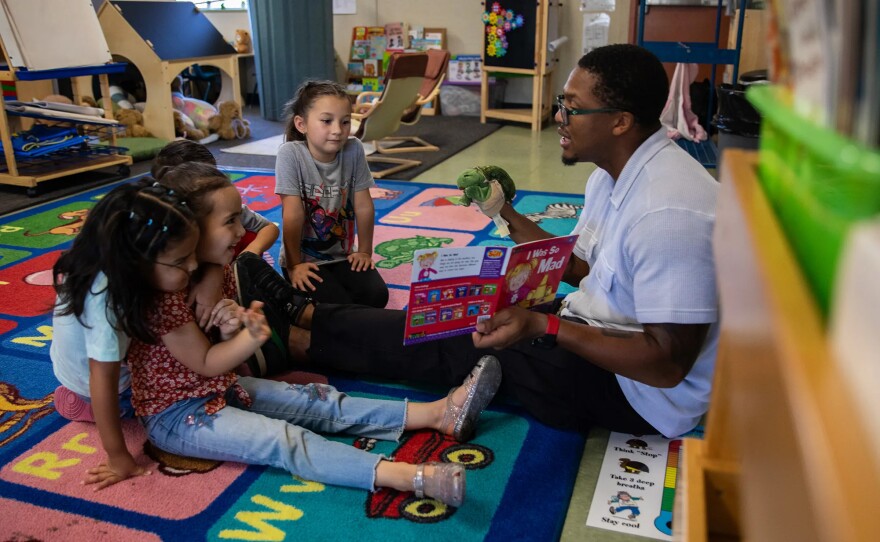
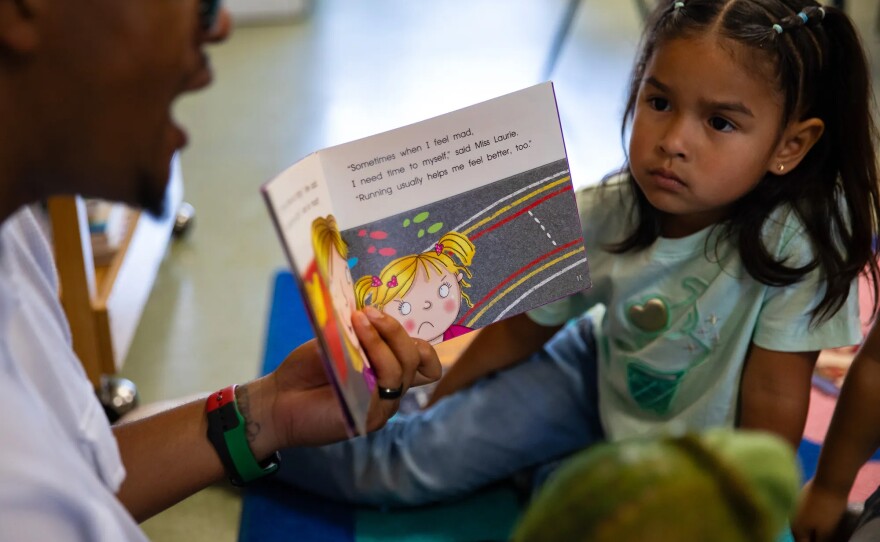
Generations of domestic violence
Gibot has experienced domestic violence throughout her life. Growing up, she saw her parents and other family members deal with the same issues.
At Mi Escuelita, Gibot benefitted from some of the mental health services offered to families of students. She received therapy and attended parent engagement meetings where she learned tips on how to support James, such as using physical touch to regulate his body and using more words of affirmation to build his self-esteem.
Within six months, Gibot began to notice improvements in his behavior. She said she wishes more schools were set up like Mi Escuelita to spare families red tape and having to navigate through a variety of specialists at different locations.
“Ideally, the norm should be like Mi Escuelita, especially since there’s so many kids who could benefit from it,” she said.
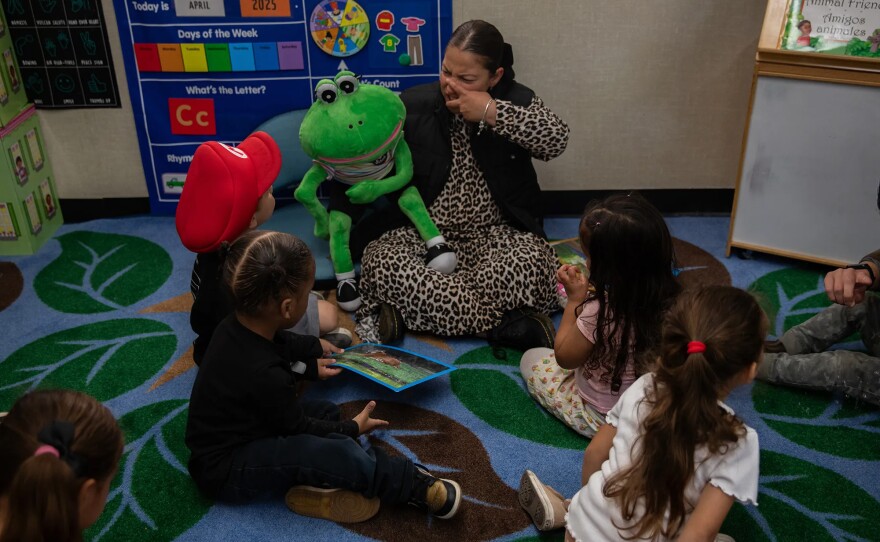
What happens after Mi Escuelita?
When students leave Mi Escuelita, they enter school districts that may offer some mental health services or intervention, but usually not as hands-on as they are used to. If a teacher or staff member believes a student may be dealing with mental health related issues, they can recommend that the student see a school counselor or social worker. From there, school officials can refer the family of the student to outside health providers offered by community organizations or local county health services.
Hilaria Bauer, chief early learning services officer at the Bay Area nonprofit early learning organization Kidango, said other educators are beginning to embrace concepts from Mi Escuelita’s approach, especially after the COVID-19 pandemic.
“As we came back to classrooms and to more regular types of activities, you begin to see how that isolation, that trauma affected our families and the children,” she said.
But building the unique learning environment SBCS created at Mi Escuelita may be challenging to replicate.
“It’s such a wonderful idea and it’s such a powerful idea. I’m assuming it’s also a very expensive idea,” said Bauer.
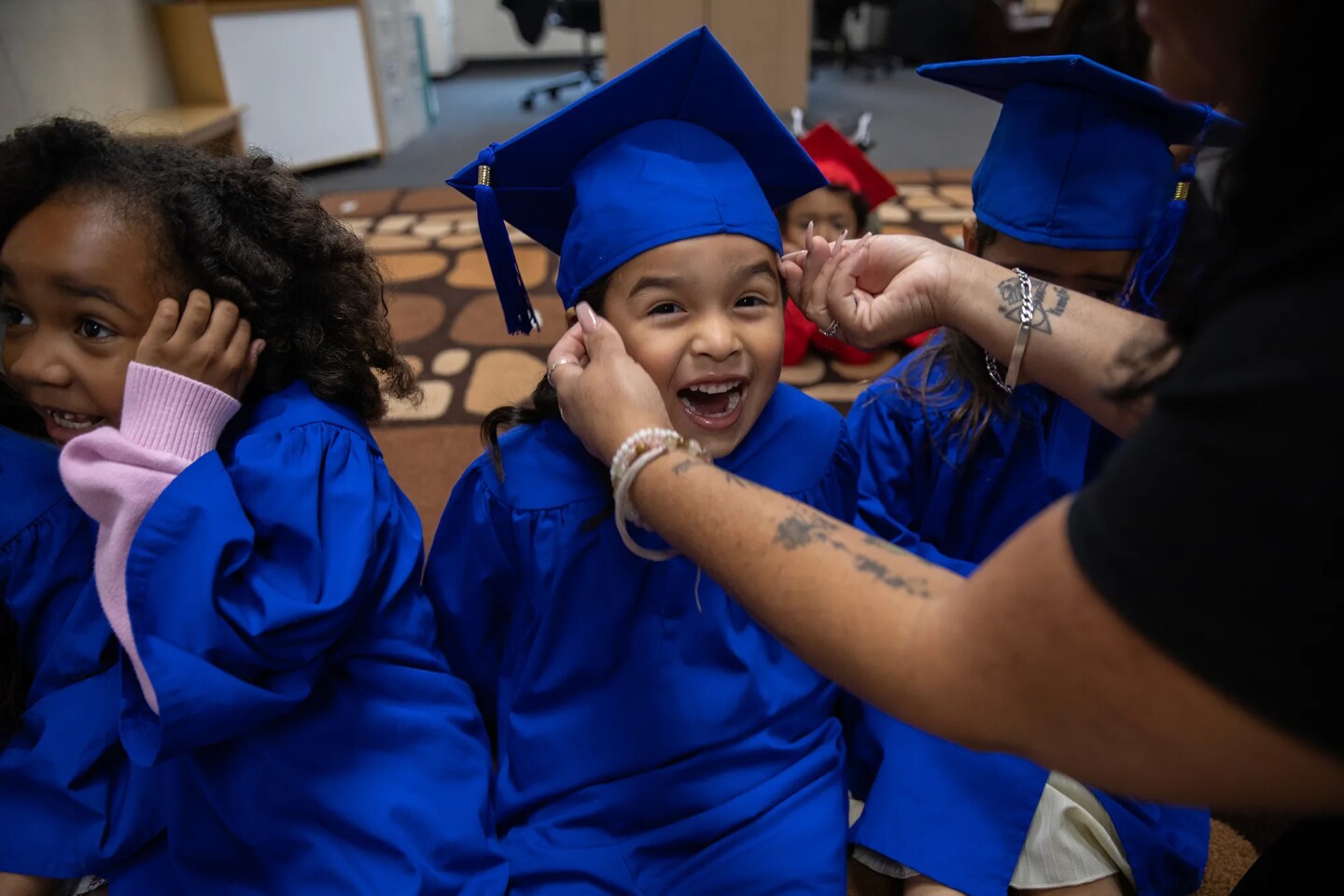
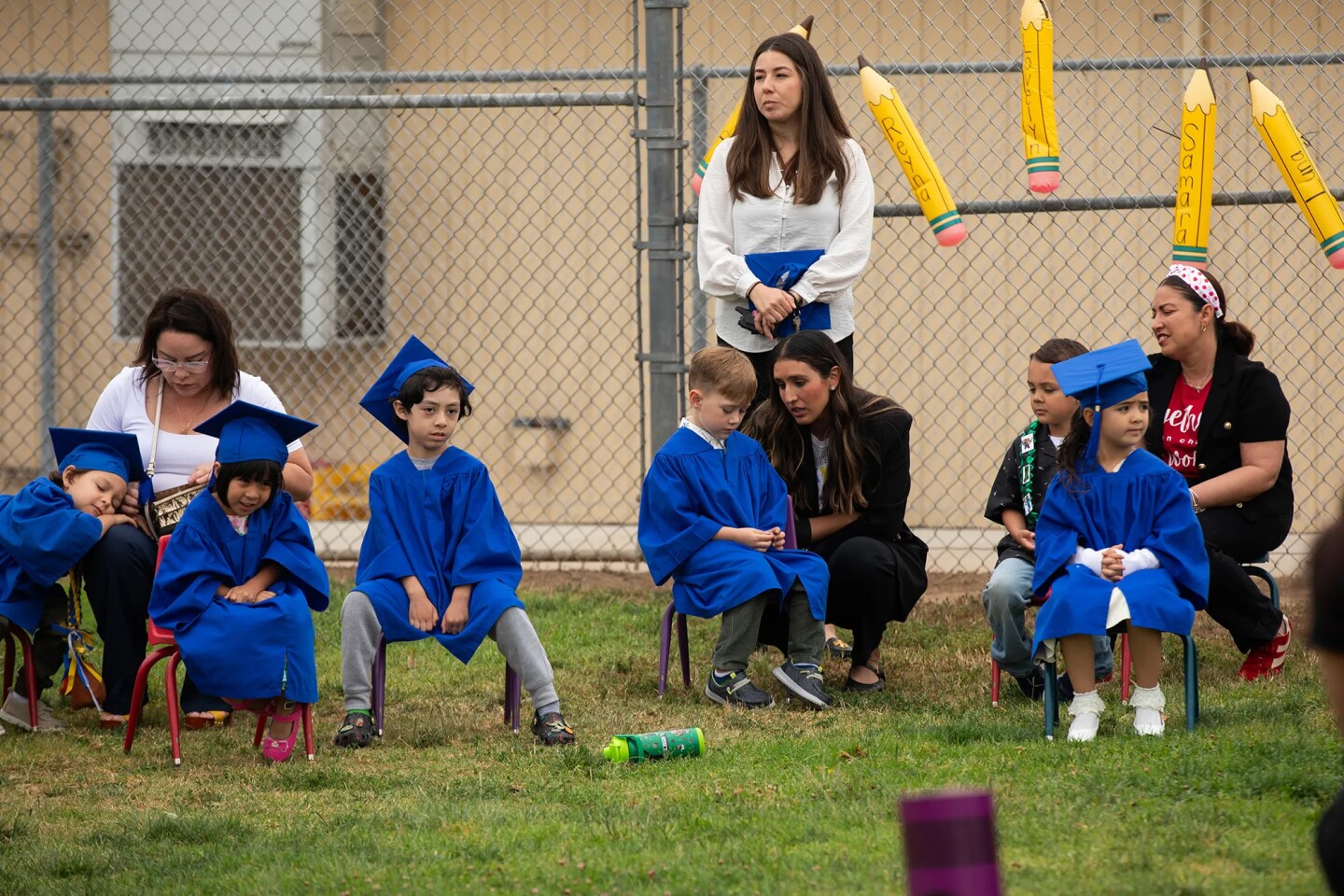
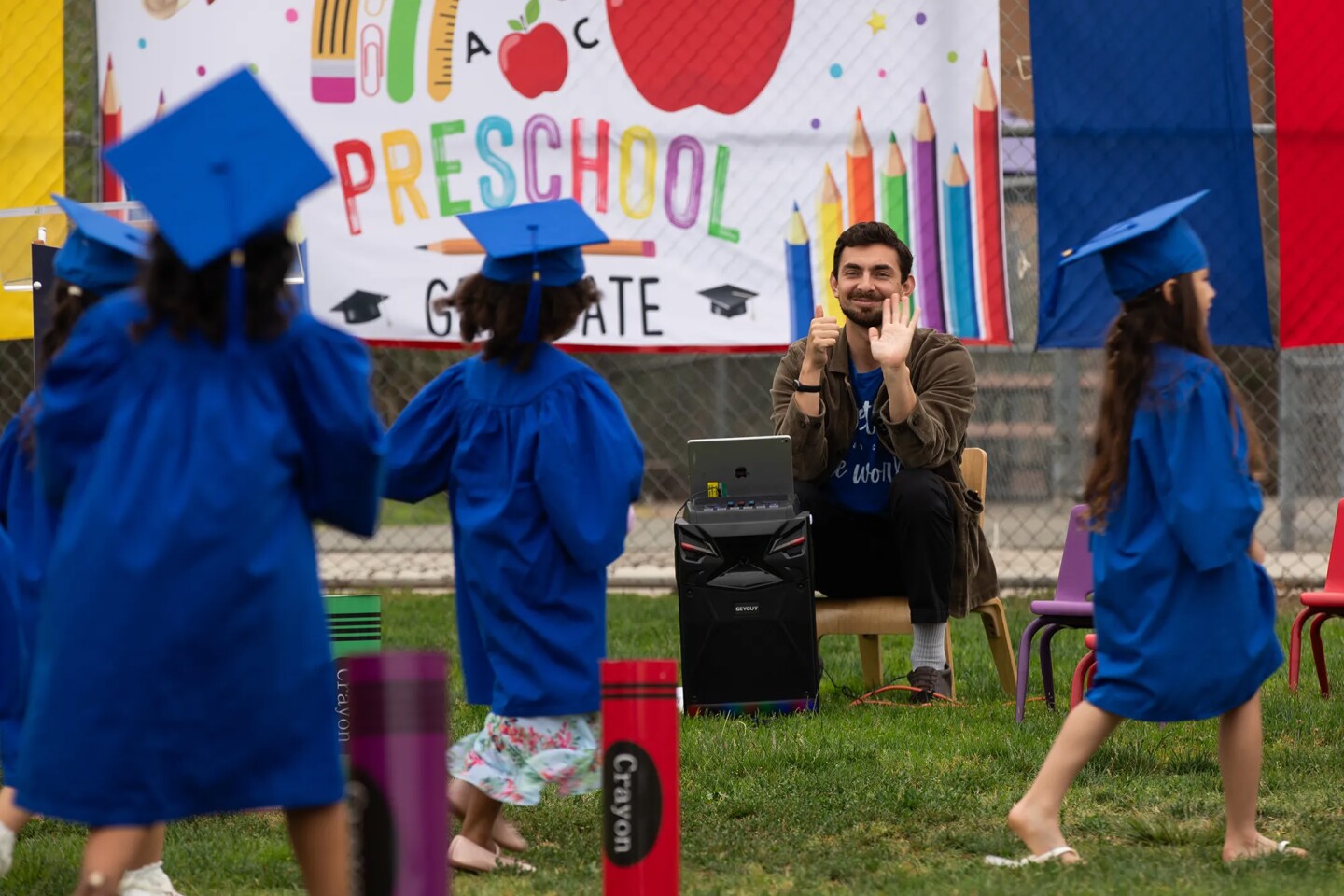
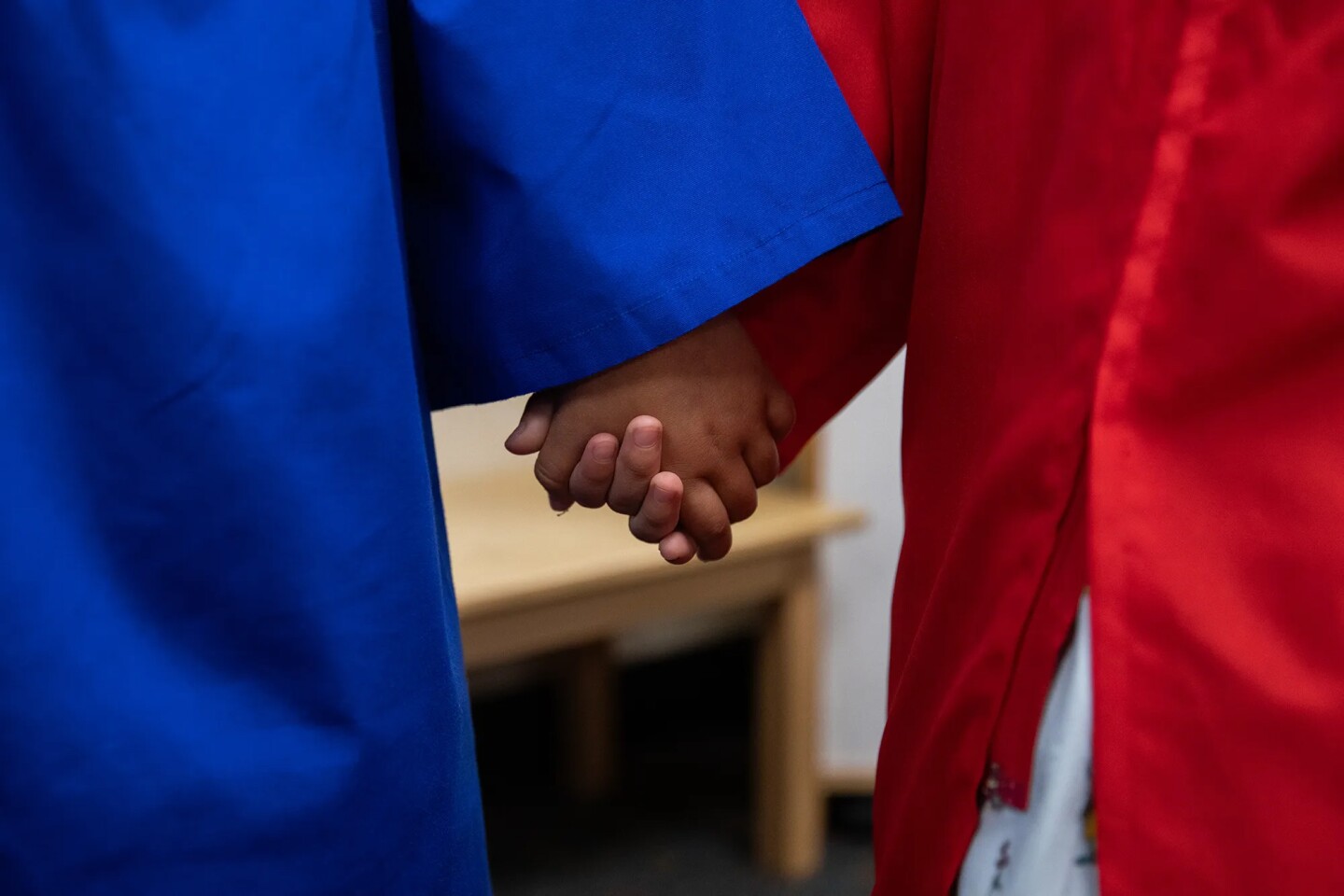
The cost of operating Mi Escuelita is $1.3 million each year; it’s funded by a mix of local, state and federal sources, as well as private donors, according to SBCS.
On top of funding, Bauer says finding the right staffing is another hurdle to take into consideration. For instance, it can be difficult to find teachers who have the required license to provide therapy in addition to having classroom experience.
Still, Bauer says policymakers can benefit in the long run from implementing certain concepts offered at Mi Escuelita. Research seems to back her assessment. Another UC San Diego study, which tracked the performance of students over several years, showed those who attended Mi Escuelita tended to score at the same level or sometimes higher in math, reading and writing compared to other students in the Chula Vista Elementary School District.
“We can spend less later on intervention programs and alternative facilities,” Bauer said. “There will be less truancy, less big behaviors or expulsions or alternative programs, and all of those ‘fix’ initiatives if we really focus on the time in the life of a child that really makes a change.”
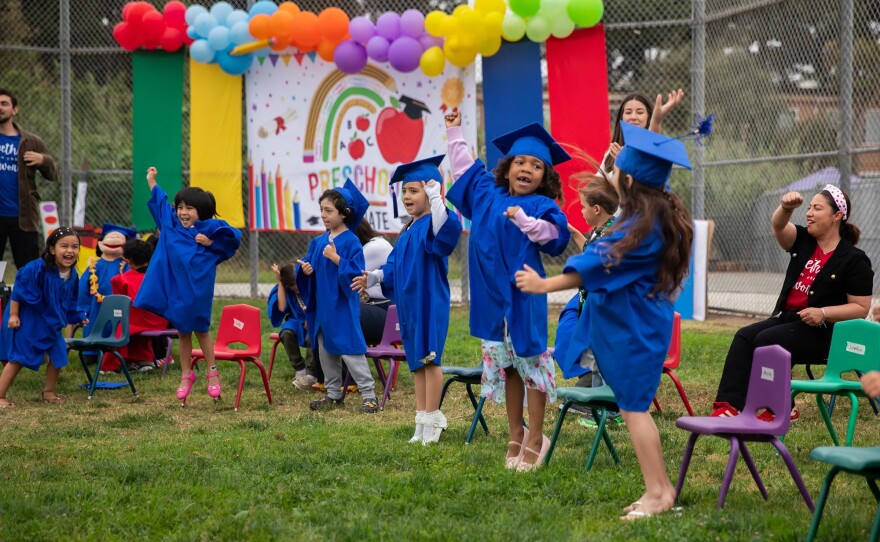
James started kindergarten in August and celebrated his birthday in September. He’s doing well, Gibot said.
As he prepared for kindergarten, Gibot said she worried about what might happen. Klemp assured her that she and James would continue to receive support from SBCS. That made her feel more confident.
“He’s learned a lot and gained skills that I wish I was able to teach him. But you know, we both learned,” she said.
James was one of the students who graduated from Mi Escuelita in May. Gibot, sitting with the rest of the attendees at the ceremony, watched as her son performed songs with his fellow classmates, cheered for his friends and received a small diploma.
“It was just really emotional for me. I’m like ‘Wow. He’s not scared. He’s not feeling all these different emotions,’” she said. “He just did it all by himself. And just seeing that independence grow, it’s just beautiful.”
This project story was produced jointly by CalMatters & CatchLight as part of our mental health initiative.






